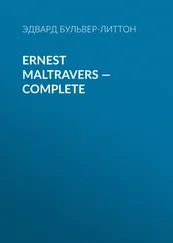Эдвард Бульвер-Литтон - A Strange Story — Complete
Здесь есть возможность читать онлайн «Эдвард Бульвер-Литтон - A Strange Story — Complete» — ознакомительный отрывок электронной книги совершенно бесплатно, а после прочтения отрывка купить полную версию. В некоторых случаях можно слушать аудио, скачать через торрент в формате fb2 и присутствует краткое содержание. Жанр: foreign_prose, literature_19, Европейская старинная литература, foreign_antique, на английском языке. Описание произведения, (предисловие) а так же отзывы посетителей доступны на портале библиотеки ЛибКат.
- Название:A Strange Story — Complete
- Автор:
- Жанр:
- Год:неизвестен
- ISBN:нет данных
- Рейтинг книги:3 / 5. Голосов: 1
-
Избранное:Добавить в избранное
- Отзывы:
-
Ваша оценка:
- 60
- 1
- 2
- 3
- 4
- 5
A Strange Story — Complete: краткое содержание, описание и аннотация
Предлагаем к чтению аннотацию, описание, краткое содержание или предисловие (зависит от того, что написал сам автор книги «A Strange Story — Complete»). Если вы не нашли необходимую информацию о книге — напишите в комментариях, мы постараемся отыскать её.
A Strange Story — Complete — читать онлайн ознакомительный отрывок
Ниже представлен текст книги, разбитый по страницам. Система сохранения места последней прочитанной страницы, позволяет с удобством читать онлайн бесплатно книгу «A Strange Story — Complete», без необходимости каждый раз заново искать на чём Вы остановились. Поставьте закладку, и сможете в любой момент перейти на страницу, на которой закончили чтение.
Интервал:
Закладка:
Here a gentleman struck into the conversation. He was a stranger to me and to L——, a visitor to one of the dwellers on the Hill, who had asked leave to present him to its queen as a great traveller and an accomplished antiquary.
Said this gentleman: “Sir Philip Derval? I know him. I met him in the East. He was then still, I believe, very fond of chemical science; a clever, odd, philanthropical man; had studied medicine, or at least practised it; was said to have made many marvellous cures. I became acquainted with him in Aleppo. He had come to that town, not much frequented by English travellers, in order to inquire into the murder of two men, of whom one was his friend and the other his countryman.”
“This is interesting,” said Mrs. Poyntz, dryly. “We who live on this innocent Hill all love stories of crime; murder is the pleasantest subject you could have hit on. Pray give us the details.”
“So encouraged,” said the traveller, good-humouredly, “I will not hesitate to communicate the little I know. In Aleppo there had lived for some years a man who was held by the natives in great reverence. He had the reputation of extraordinary wisdom, but was difficult of access; the lively imagination of the Orientals invested his character with the fascinations of fable,—in short, Haroun of Aleppo was popularly considered a magician. Wild stories were told of his powers, of his preternatural age, of his hoarded treasures. Apart from such disputable titles to homage, there seemed no question, from all I heard, that his learning was considerable, his charities extensive, his manner of life irreproachably ascetic. He appears to have resembled those Arabian sages of the Gothic age to whom modern science is largely indebted,—a mystic enthusiast, but an earnest scholar. A wealthy and singular Englishman, long resident in another part of the East, afflicted by some languishing disease, took a journey to Aleppo to consult this sage, who, among his other acquirements, was held to have discovered rare secrets in medicine,—his countrymen said in ‘charms.’ One morning, not long after the Englishman’s arrival, Haroun was found dead in his bed, apparently strangled, and the Englishman, who lodged in another part of the town, had disappeared; but some of his clothes, and a crutch on which he habitually supported himself, were found a few miles distant from Aleppo, near the roadside. There appeared no doubt that he, too, had been murdered, but his corpse could not be discovered. Sir Philip Derval had been a loving disciple of this Sage of Aleppo, to whom he assured me he owed not only that knowledge of medicine which, by report, Sir Philip possessed, but the insight into various truths of nature, on the promulgation of which, it was evident, Sir Philip cherished the ambition to found a philosophical celebrity for himself.”
“Of what description were those truths of nature?” I asked, somewhat sarcastically.
“Sir, I am unable to tell you, for Sir Philip did not inform me, nor did I much care to ask; for what may be revered as truths in Asia are usually despised as dreams in Europe. To return to my story: Sir Philip had been in Aleppo a little time before the murder; had left the Englishman under the care of Haroun. He returned to Aleppo on hearing the tragic events I have related, and was busy in collecting such evidence as could be gleaned, and instituting inquiries after our missing countryman at the time I myself chanced to arrive in the city. I assisted in his researches, but without avail. The assassins remained undiscovered. I do not myself doubt that they were mere vulgar robbers. Sir Philip had a darker suspicion of which he made no secret to me; but as I confess that I thought the suspicion groundless, you will pardon me if I do not repeat it. Whether since I left the East the Englishman’s remains have been discovered, I know not. Very probably; for I understand that his heirs have got hold of what fortune he left,—less than was generally supposed. But it was reported that he had buried great treasures, a rumour, however absurd, not altogether inconsistent with his character.”
“What was his character?” asked Mrs. Poyntz.
“One of evil and sinister repute. He was regarded with terror by the attendants who had accompanied him to Aleppo. But he had lived in a very remote part of the East, little known to Europeans, and, from all I could learn, had there established an extraordinary power, strengthened by superstitious awe. He was said to have studied deeply that knowledge which the philosophers of old called ‘occult,’ not, like the Sage of Aleppo, for benevolent, but for malignant ends. He was accused of conferring with evil spirits, and filling his barbaric court (for he lived in a kind of savage royalty) with charmers and sorcerers. I suspect, after all, that he was only, like myself, an ardent antiquary, and cunningly made use of the fear he inspired in order to secure his authority, and prosecute in safety researches into ancient sepulchres or temples. His great passion was, indeed, in excavating such remains, in his neighbourhood; with what result I know not, never having penetrated so far into regions infested by robbers and pestiferous with malaria. He wore the Eastern dress, and always carried jewels about him. I came to the conclusion that for the sake of these jewels he was murdered, perhaps by some of his own servants (and, indeed, two at least of his suite were missing), who then at once buried his body, and kept their own secret. He was old, very infirm; could never have got far from the town without assistance.”
“You have not yet told us his name,” said Mrs. Poyntz.
“His name was Grayle.”
“Grayle!” exclaimed Mrs. Poyntz, dropping her work. “Louis Grayle?”
“Yes; Louis Grayle. You could not have known him?”
“Known him! No; but I have often heard my father speak of him. Such, then, was the tragic end of that strong dark creature, for whom, as a young girl in the nursery, I used to feel a kind of fearful admiring interest?”
“It is your turn to narrate now,” said the traveller.
And we all drew closer round our hostess, who remained silent some moments, her brow thoughtful, her work suspended.
“Well,” said she at last, looking round us with a lofty air, which seemed half defying, “force and courage are always fascinating, even when they are quite in the wrong. I go with the world, because the world goes with me; if it did not—” Here she stopped for a moment, clenched the firm white hand, and then scornfully waved it, left the sentence unfinished, and broke into another.
“Going with the world, of course we must march over those who stand against it. But when one man stands single-handed against our march, we do not despise him; it is enough to crush. I am very glad I did not see Louis Grayle when I was a girl of sixteen.” Again she paused a moment, and resumed: “Louis Grayle was the only son of a usurer, infamous for the rapacity with which he had acquired enormous wealth. Old Grayle desired to rear his heir as a gentleman; sent him to Eton. Boys are always aristocratic; his birth was soon thrown in his teeth; he was fierce; he struck boys bigger than himself,—fought till he was half killed. My father was at school with him; described him as a tiger-whelp. One day he—still a fag—struck a sixth-form boy. Sixth-form boys do not fight fags; they punish them. Louis Grayle was ordered to hold out his hand to the cane; he received the blow, drew forth his schoolboy knife, and stabbed the punisher. After that, he left Eton. I don’t think he was publicly expelled—too mere a child for that honour—but he was taken or sent away; educated with great care under the first masters at home. When he was of age to enter the University, old Grayle was dead. Louis was sent by his guardians to Cambridge, with acquirements far exceeding the average of young men, and with unlimited command of money. My father was at the same college, and described him again,—haughty, quarrelsome, reckless, handsome, aspiring, brave. Does that kind of creature interest you, my dears?” (appealing to the ladies).
Читать дальшеИнтервал:
Закладка:
Похожие книги на «A Strange Story — Complete»
Представляем Вашему вниманию похожие книги на «A Strange Story — Complete» списком для выбора. Мы отобрали схожую по названию и смыслу литературу в надежде предоставить читателям больше вариантов отыскать новые, интересные, ещё непрочитанные произведения.
Обсуждение, отзывы о книге «A Strange Story — Complete» и просто собственные мнения читателей. Оставьте ваши комментарии, напишите, что Вы думаете о произведении, его смысле или главных героях. Укажите что конкретно понравилось, а что нет, и почему Вы так считаете.












